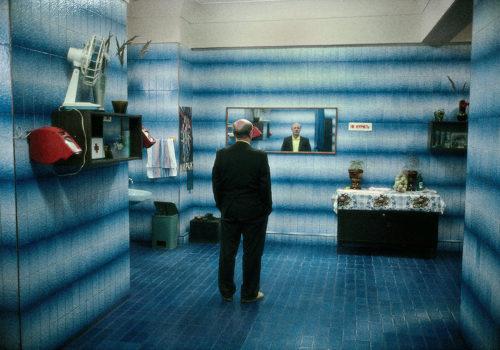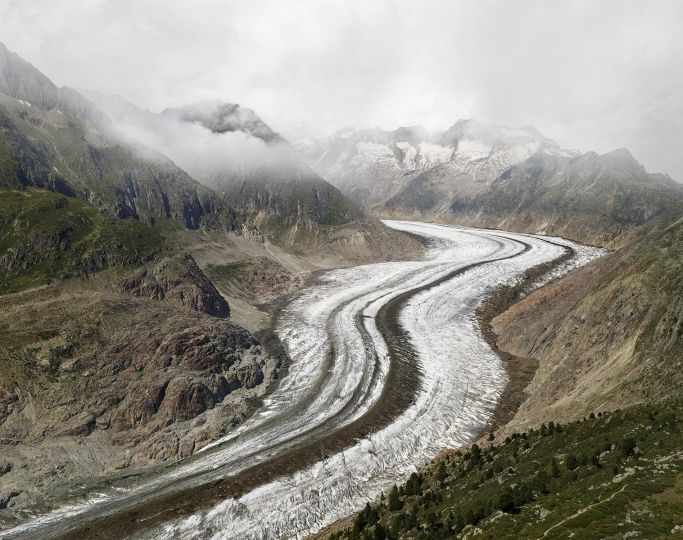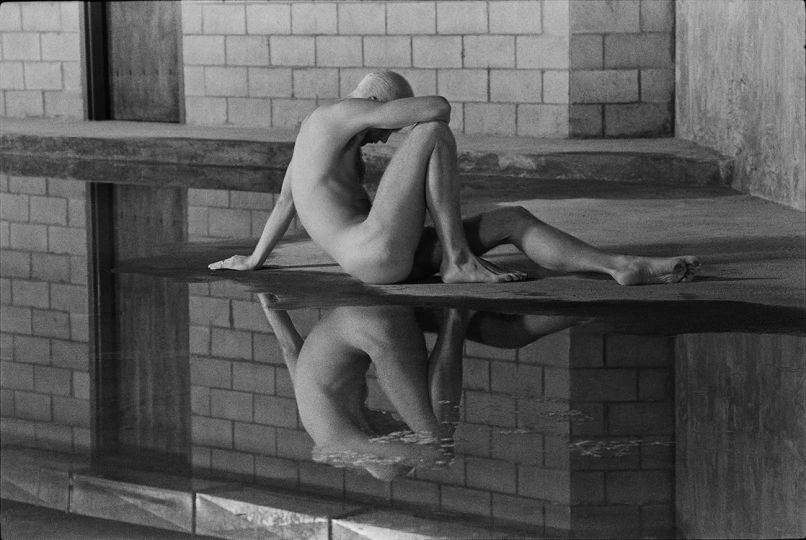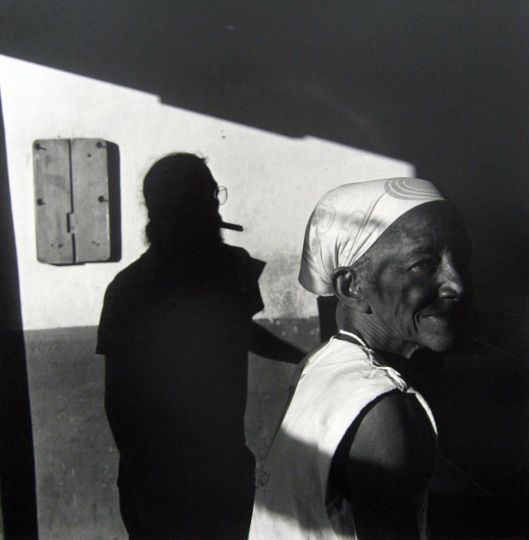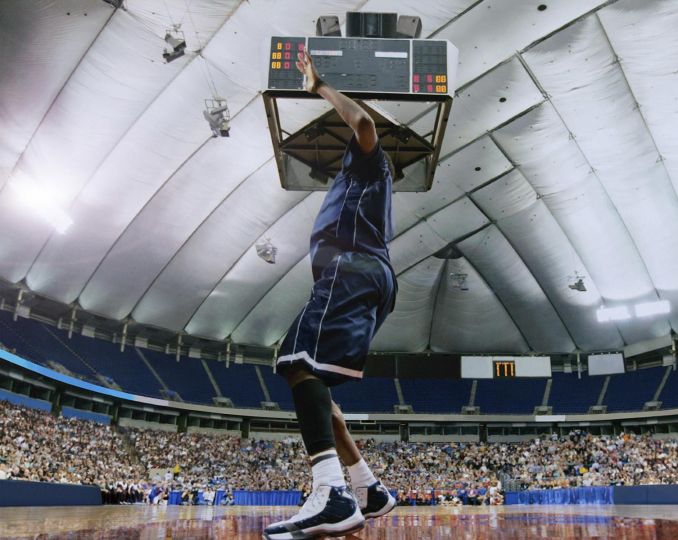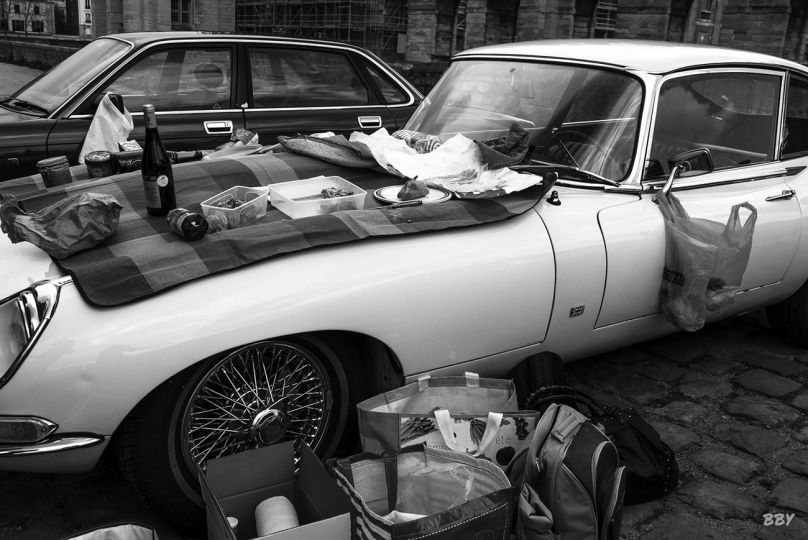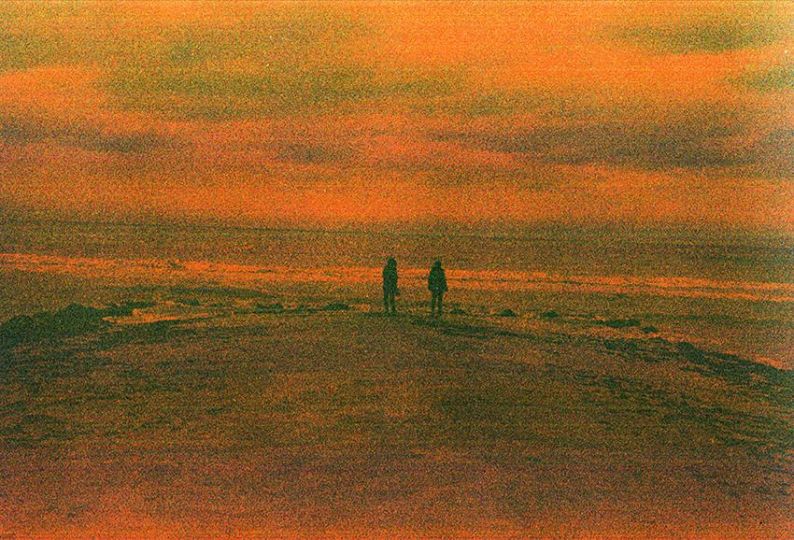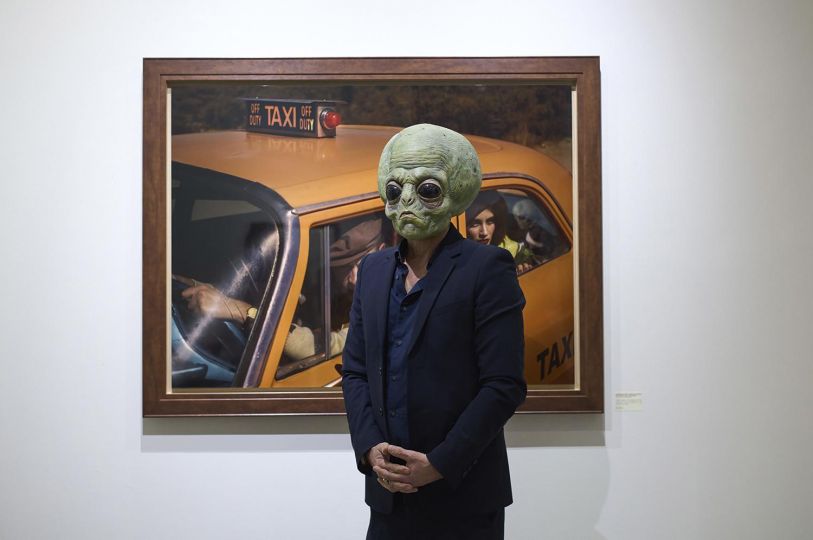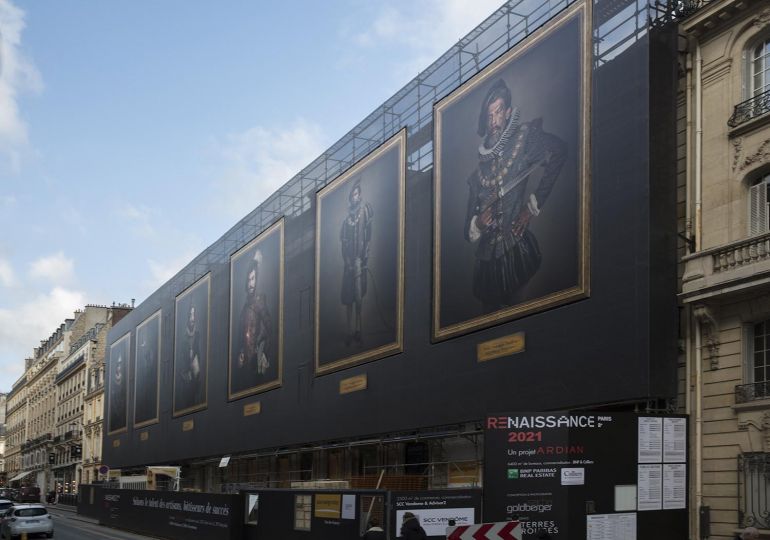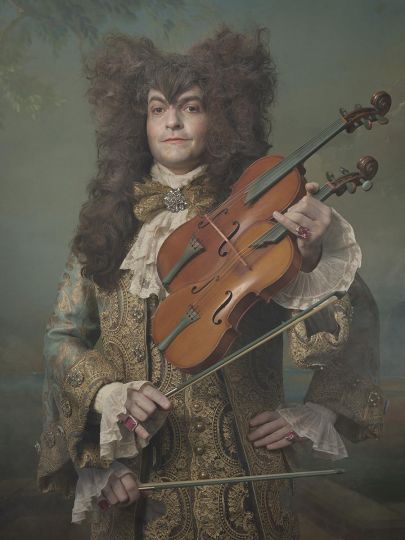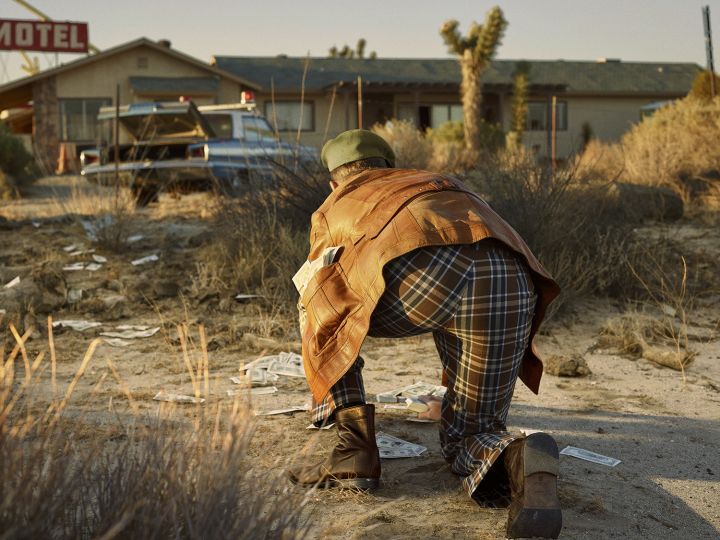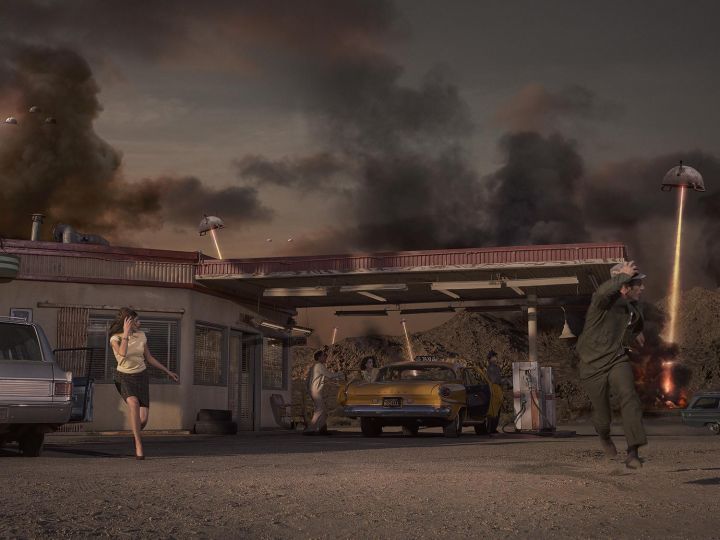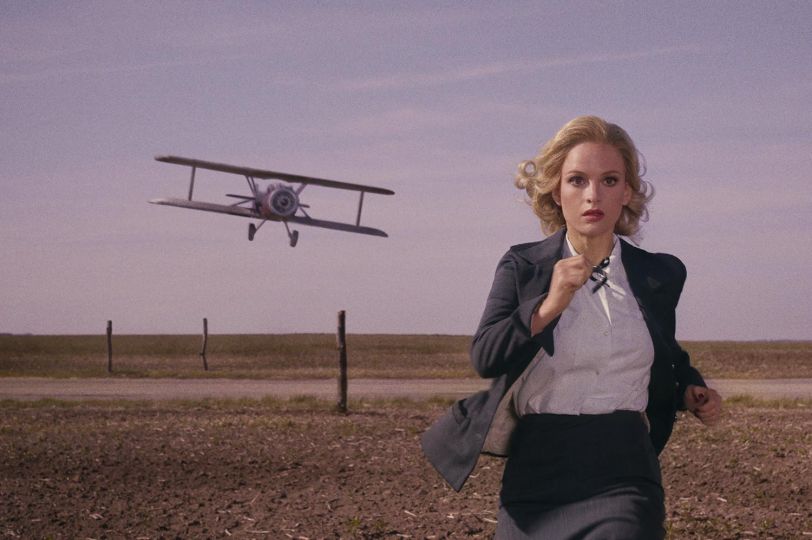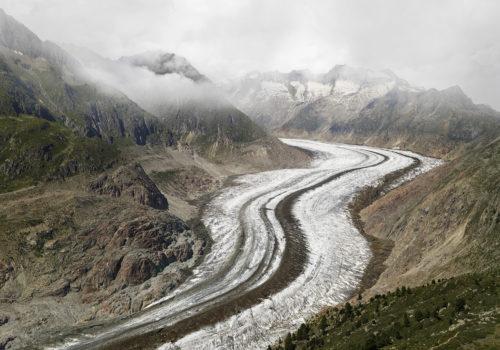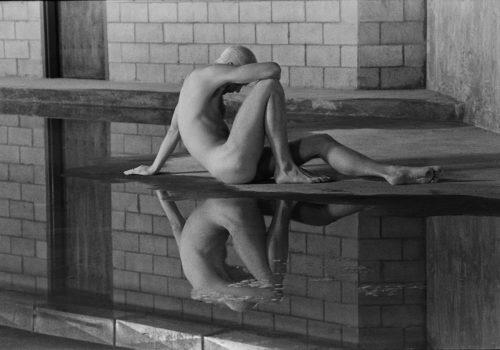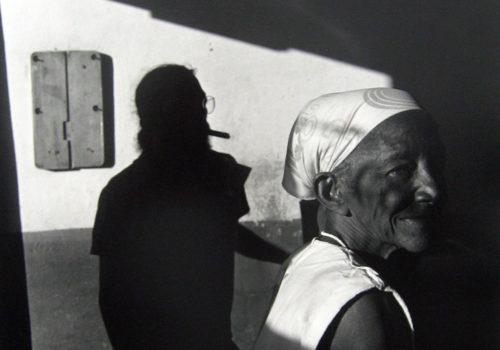Moscow, USSR 1989
Something is wrong. This large room, empty as the bottom of a swimming pool, is full as an egg. And everything it contains says something other than what it shows. The electric hand dryers and the no smoking sign indicate a public place, but everywhere else the signs of private space are multiplied: medicine cabinet, poster, sideboard, placemat, fruit, vases, plants. And it is indeed the strangeness and the slight discomfort of what we see: in these public toilets the hurried passage is transformed into a prolonged stay and the surreptitious and embarrassed glances which are usually exchanged there in stubborn and motionless contemplation.
Amidst the vast grid of the tiles, airbrush-style blue lines capture the eye, blurring it, like television screens of old in the cold vibrations of cathodic snow. It looks like a closing trap: in the center, perfectly still in the middle of the lines of water where we lose our footing, the insect is waiting to catch us in the glue of the mirror.
The stranger who catches us in his net knows what to do: show a peaceful and round back, but stay on the alert. The way he has of dissociating himself in his reflection should put us on alert. We do not get used to this law of mirrors, it is insurmountable: how is it possible that this man looks us in the eye while turning his back to us? It is perhaps to dissipate the discomfort of this trap that we would prefer to see the impossible happen: his back still in the mirror, as in a painting by Magritte, not specular but fractal, the same empty scene reproduced infinity, so as not to have to be caught in this gaze which stops us by slipping away.
There is undoubtedly another address in this look, still contained in the title: Moscow, URSS, 1989. This image is also the commentary of the time. For those who remember it, the stranger who turns his back to us is a fairly faithful look-alike of Gorbachev and the decor made of screens and mirrors floating in the aquatic air is a fairly good image of Glasnost, a word that referred to the policy of “Transparency” and openness of the country at that time. The Russian is waiting, he has us in his sights, since nothing has moved here he has learned patience. His eyes slightly drooping and tired, he draws us into his decor, and what he says about transparency is thrown back in our faces by the old specular enigma worthy of a painting by Velázquez: looking straight ahead into the mirror. It is he we see and, believing we see him, it is he alone who is looking at us. Suffice to say that the Transparency promised for thirty-five years by the double and his clones is an endless game of mirrors. It even has a name, hidden in the decor, which says exactly of what we are the prey of. You have to look closely because you can hardly see it. It is written in full on a poster taped in the corner near the towel, that of a Russian pop group that was all the rage at the time: Мираж – the Mirage.
– Bertrand Schefer (unpublished text for the Eye of Photography / LE BAL)
Bertrand Schefer devoted his first works to the rediscovery of founding texts of the Italian Renaissance on the theory of the visual arts. Writer and director, he notably co-directed with Valérie Mréjen the films En ville (2011) and Enfant chéri (2016), and published by éditions P.O.L Cérémonie (2012), La Photo au-dessus du lit (2014) and Martin (2016).

